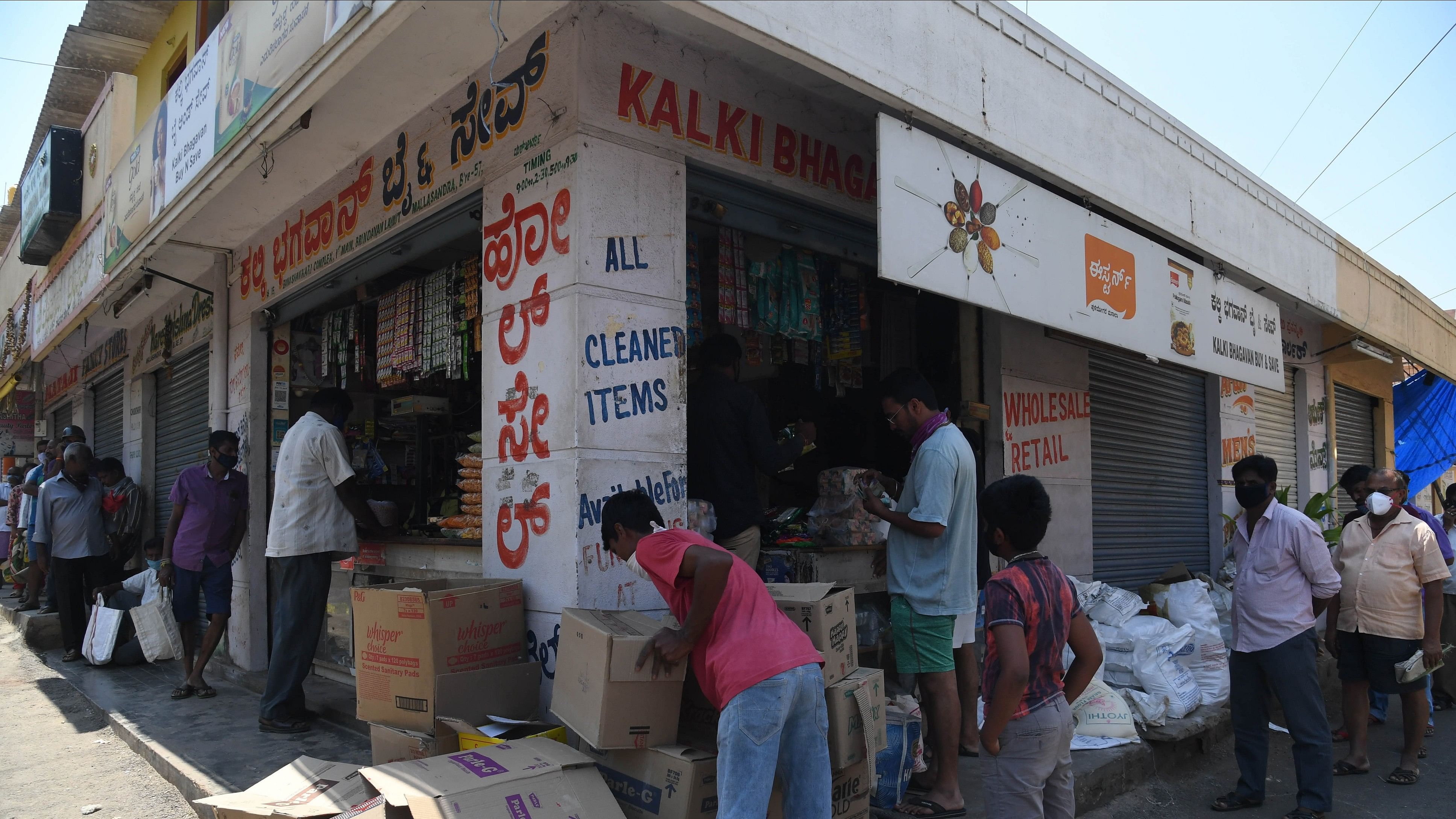
People line up for groceries at a store, at Bagalgunte, in Bengaluru on Monday.
DH Photo/ B H Shivakumar
Bengaluru: On February 1, Union Finance Minister, Nirmala Sitharaman made a slew of announcements that should pep up rural consumption. However, most industry players and observers DH spoke to are convinced that it will be at least a 12-month wait before these supportive measures will have any significant impact on the ground.
“It will largely be business as usual for the government, at least till the first quarter of FY25. Furthermore, the designing, the roll out and identification of beneficiaries of new schemes after the full Budget is presented in June-July, may take another 1-3 months,” said Yuvika Oberoi Singhal, economist at QuantEco Research. Historically, most new schemes have exhibited better performance in the second year, post full implementation, she added.
The announcements made in the interim budget were essentially a continuation of the fiscal support extended through 2023 to improve trailing consumption demand in rural India. They are structured to increase discretionary spending amongst low and middle-income households. These include, a 10% year-on-year increase in outlay for the flagship Ayushman Bharat Scheme to Rs 7,500 crore, addition of 2 crore houses under the Prime Minister Awas Yojana (Grameen) over five years and plans to introduce a new scheme to enable middle-income households currently living in rented homes, slums, chawls or unauthorised colonies to own/build their own homes.
The government has chosen a fiscally prudent investment-led route, as opposed to direct dole outs, for immediate impact, to avoid a surge in inflationary pressures, Deloitte’s Anand Ramanathan pointed out. The various measures announced in the Interim Budget are likely to bring indirect benefits to a range of ancillary sectors over time, he added.
Singhal agreed. “There is a time lag associated, but it is necessary for a healthier mix of growth and macro stability,” she underscored.
This brings much-awaited cheer for homegrown fast-moving consumer goods (FMCG) companies, which saw a decline in their businesses across rural India in 2023, owing to high inflation and erratic monsoon. Businesses across several sectors, including FMCG, have seen a split recovery from the pandemic, with urban demand’s improvement staying above rural consumption growth (which continues to lag behind pre-pandemic levels).
Sales volume in the consumer goods sector increased 6.4% in the October-December quarter of 2023, slower than the 8.6% growth in the previous quarter, market researcher NielsenIQ said on Tuesday.
In the third quarter of the ongoing financial year, at least two FMCG majors - Hindustan Unilever and Marico blamed missing profit targets on sluggish rural demand. On the other hand, Dabur India said it has begun seeing recovery in rural markets.
“Looking forward we expect gradual recovery in market demand to continue aided by increased government spending, recovery in winter crop sowing and better crop realisation,” Hindustan Unilever Chief Executive Officer and Managing Director Rohit Jawa said in a post earnings statement last month.
This year could see the gap between rural and urban consumption growth narrow further, experts cited. “We are more sanguine on rural consumption becoming stronger in 2024 largely premised on the fact that there are macro conditions aligning in favour of rural demand - inflation correction, El Nino, which was a concern last year, is expected to completely wane out by April-May, which should hopefully pave way for a more well distributed monsoon in 2024,” Singhal said.